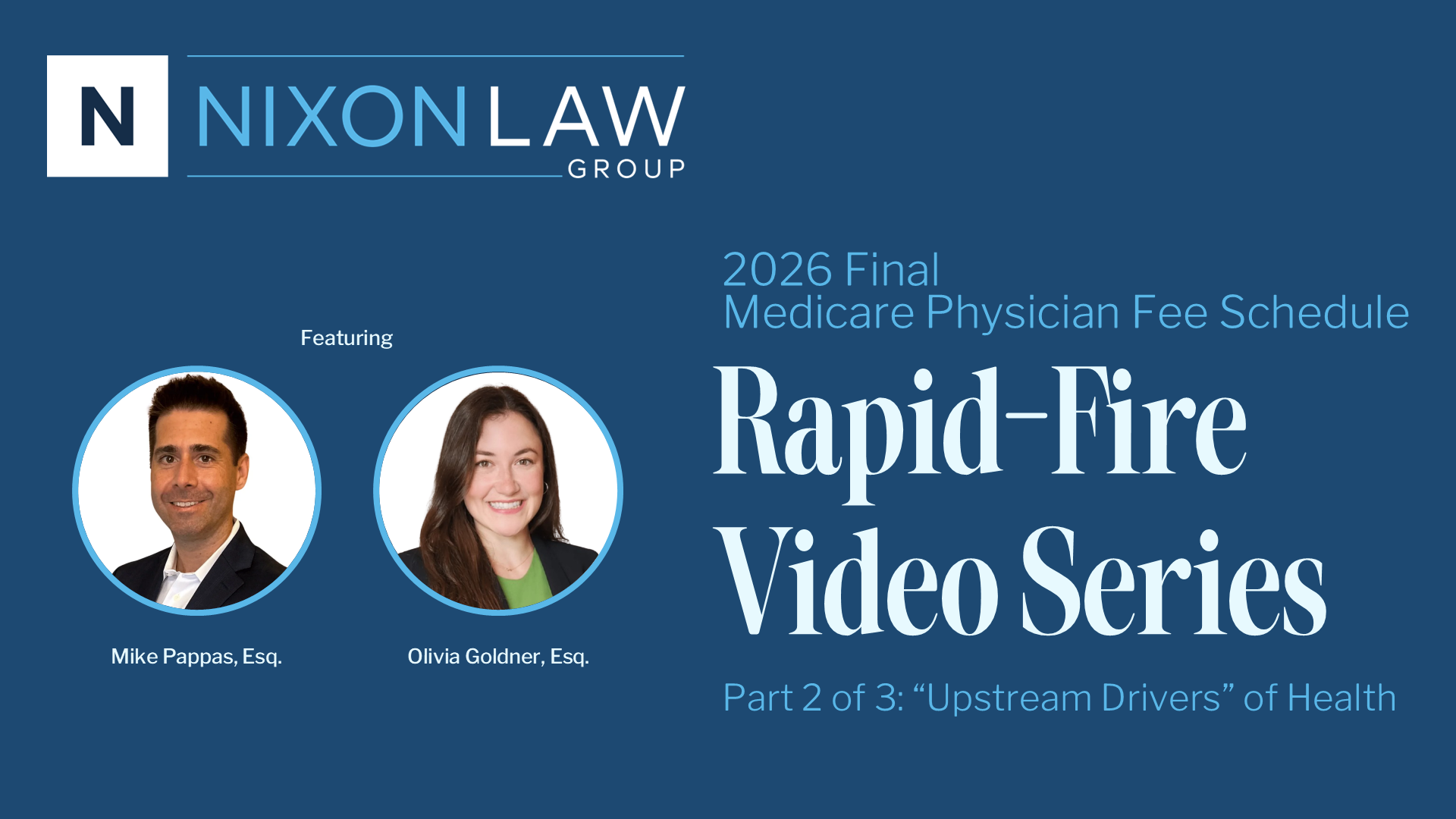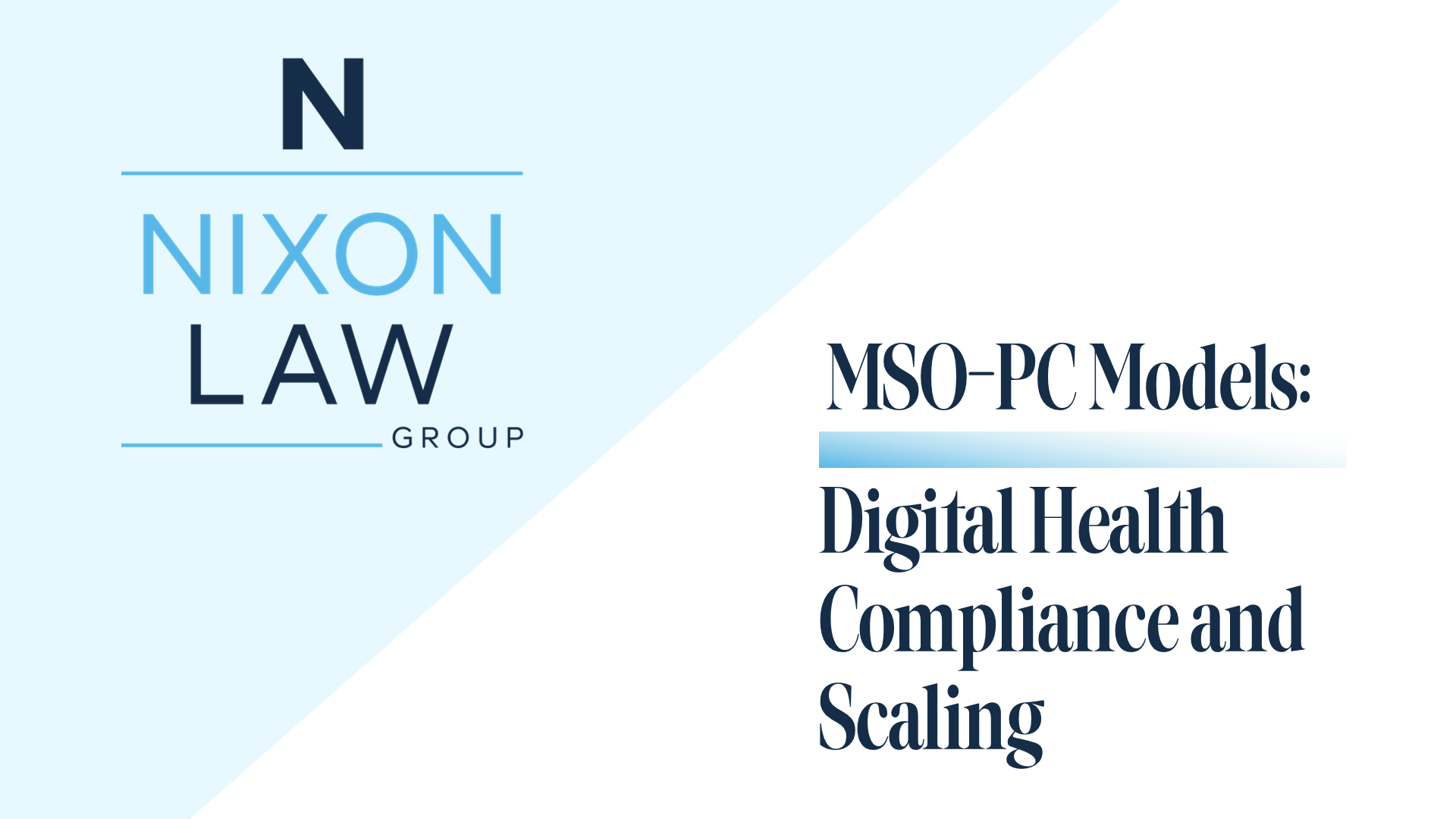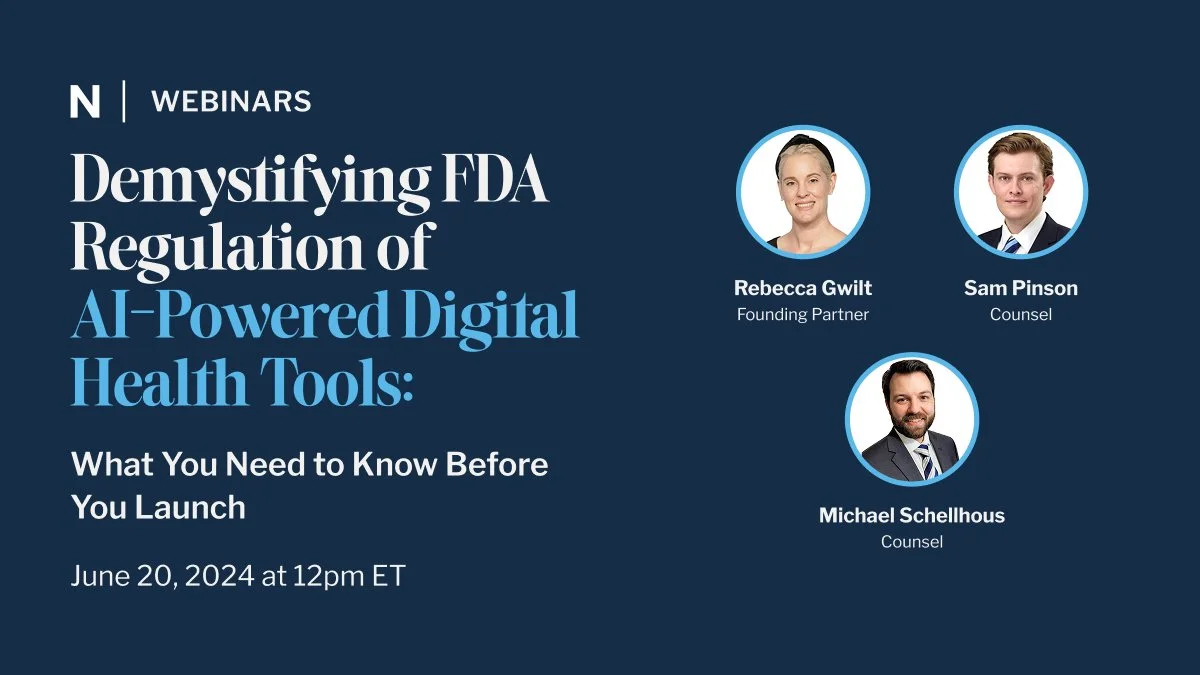
Resources:
Grow in knowledge.

2026 Medicare Final Rule Part 1: Rapid-Fire Q&A on RPM and RTM Codes
The 2026 Medicare Physician Fee Schedule (MPFS) Final Rule introduces some of the most consequential updates for Remote Physiologic Monitoring (RPM) and Remote Therapeutic Monitoring (RTM) since their inception. In Part 1 of our rapid-fire video series, health law experts Carrie Nixon and Reema Taneja break down the most significant changes impacting digital health innovators and care management companies.

2026 Medicare Final Rule Part 2: Rapid-Fire Q&A on Upstream Drivers of Health
The 2026 Medicare Physician Fee Schedule Final Rule confirms CMS’s strong push toward whole-person care, creating new reimbursement pathways for models focused on nutrition, physical activity, and social supports. In Part 2 of our series, Mike Pappas and Olivia Goldner analyze the updates to "Upstream Drivers of Health."

2026 Medicare Final Rule Part 3: Rapid-Fire Q&A on FQHC and RHC Bundled Code Unbundling
Rural Health Clinics (RHCs) and Federally Qualified Health Centers (FQHCs) face mandatory billing changes in the 2026 Medicare Physician Fee Schedule (MPFS) Final Rule. In Part 3 of our series, Stephanie Barnes and Sam Pinson break down the crucial compliance and billing updates that will affect virtual care and care management services in these settings.

MSO-PC Models: Digital Health Compliance and Scaling
Navigating the complex legal landscape of digital health requires a robust and compliant corporate structure. In this video, Nixon Law Group Senior Counsel Reema Taneja provides a comprehensive 101 on the Managed Service Organization (MSO) – Professional Corporation (PC) model, focusing on the critical regulatory hurdles of the Corporate Practice of Medicine (CPOM) and the Anti-Kickback Statute (AKS).

Cracking the Code on AI Compliance: A Competitive Edge for Digital Health Innovators
Learn how to turn AI compliance into a strategic advantage. This webinar breaks down evolving regulations and what digital health innovators need to stay ahead.

Safeguarding Healthcare: Navigating Cybersecurity, Reproductive Privacy, & Data Access Challenges

Closing Deals with an AI Governance Plan: Top Considerations for Digital Health Companies

Breaking Down the Proposed 2025 Medicare Physician Fee Schedule: Key Takeaways for Digital Health Innovators

The 2023 Medicare Physician Fee Schedule Proposed Rule: Everything You Need to Know Now

Roe v. Wade for Healthcare Businesses: International Implications of the Reversal of Roe v. Wade

Demystifying FDA Regulation of AI-Powered Digital Health Tools: What You Need to Know Before You Launch

The Top 3 Privacy Concerns for Digital Health Innovators
Discover how Privacy compliance impacts Digital Health Startup founders and executives in terms of access to capital and securing key vendor agreements in this webinar replay. You may not have ever looked at Privacy this way before, and we encourage you to explore this perspective so you can close those critical deals without unnecessary delay.
